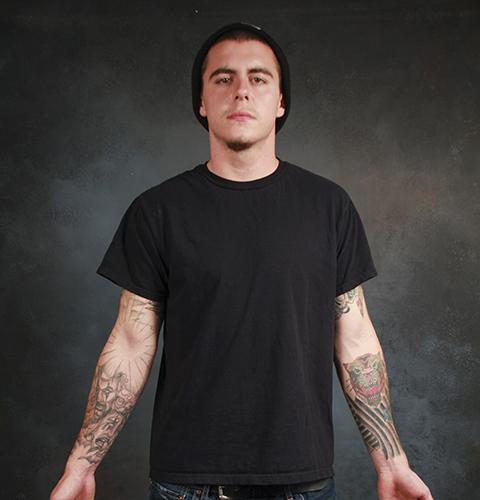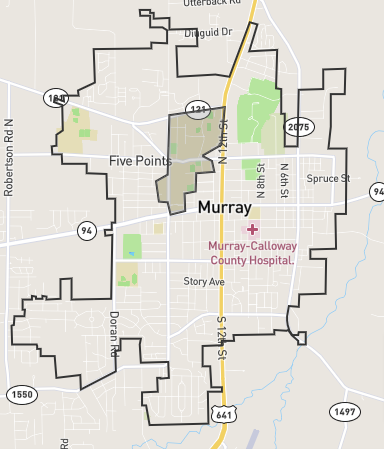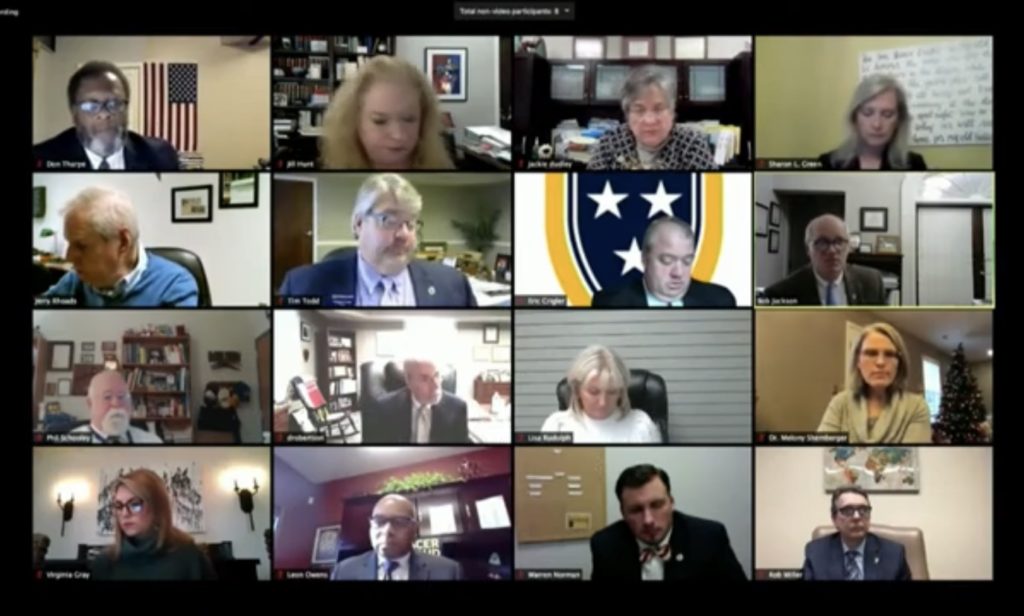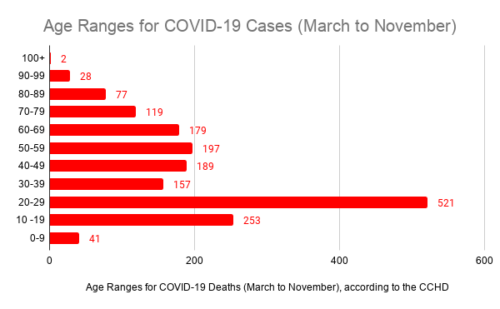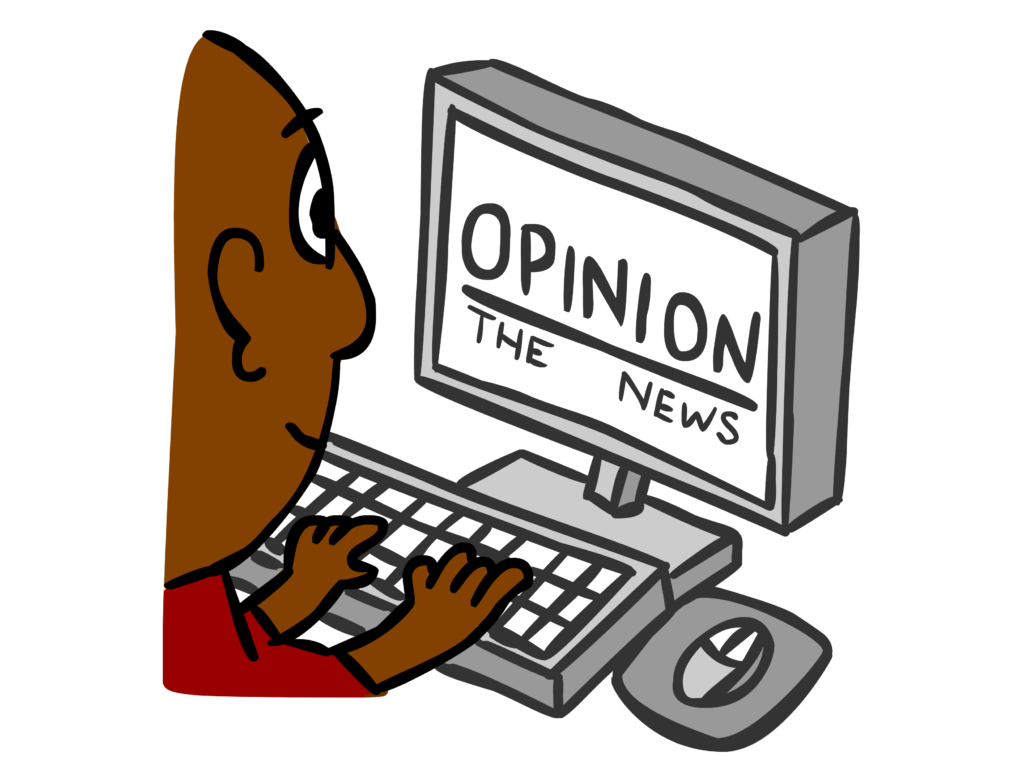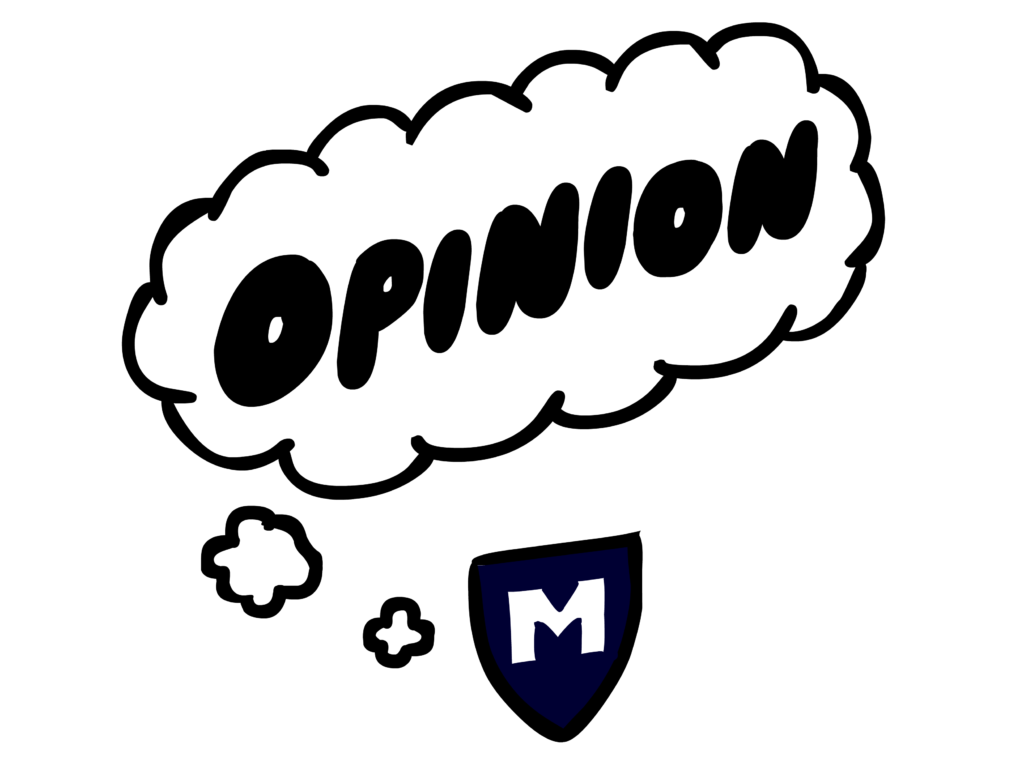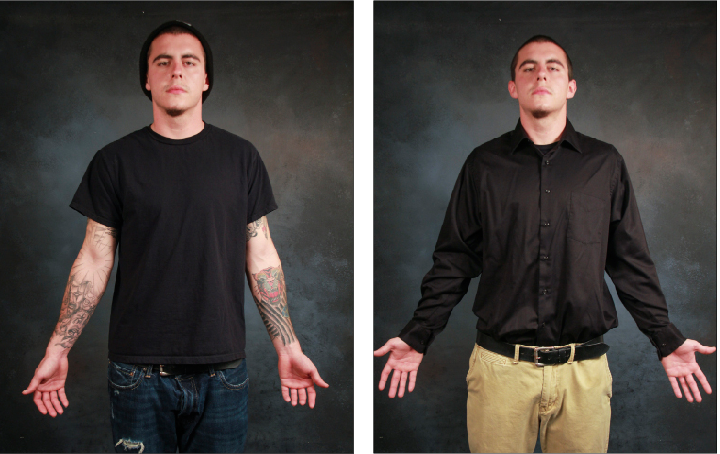
Kade Cullop dresses in casual attire and business attire to represent the stigma still associated with tattoos in the workplace.
It is hard to find anything more permanent than ink in skin. Younger generations are accepting this form of self-expression more, but the career world is a step behind.
“USA Today” cited a study conducted by careerbuilder.com that showed 31 percent of human resource managers said visible tattoos could negatively influence impact on their decision to hire someone. Bad breath outweighed this percentage in the survey.
Some Murray State students who have tattoos or are considering getting a tattoo have been influenced by their career choice.
Rebekah Moss, junior from Edmonton, Ky., said that the placement of her tattoo was influenced by her future career.
“I would have loved to have them somewhere more visible,” Moss said. “To make sure that I could get any job that was offered to me, I had to make sure they were easily covered.”
Keenan Hall, freshman from Memphis, Tenn., said he does not have a tattoo yet but has taken his career choice into consideration.
“One time I was joking about a tattoo on fingers,” Hall said. “But that wouldn’t work out at a job.”
Some students believe although some industries tolerate tattoos in the workplace, others do not.
Lindsey Bullers, senior from Clarksville, Tenn., agreed that age can influence the tolerance of visible ink in the workplace.
After being told tattoos could harm chances of securing a job in her career field, Bullers said she still believes that a person’s individuality should be accepted.
“The world is trying to become more accepting of different things and (tattoos) should be one of them,” Bullers said. “I don’t think people should hide who they are.”
For some candidates with tattoos, being hired is a task of its own. Connor Moore, sophomore from Mount Vernon, Ill., debated on whether to get a tattoo. Moore said he has a friend with tattoos who recently searched for a job. His friend was not rejected but his prospective employer raised questions about them.
Moore also said certain jobs were more accepting than others. Art related careers, factory, labor jobs and blue collar jobs were a few that Moore highlighted.
“It all depends on your career,” Moore said. “I don’t want my accountant or banker to have one.”
Hall also agreed with Moore that the nature of the job matters in the tolerance of tattoos. He said tattoos that might be offensive should not be shown in the workplace but many tattoos are a form of expression.
“I don’t think (tattoos) are a bad thing,” Hall said. “(Tattoos) shouldn’t affect the job field.”
Ross Meloan, director of career services, highlighted a study conducted by Be Hired Reach company showing that 89 percent of business currently report checking online social media accounts during the hiring process. Further data shows that one in three companies reject a candidate based on something they have found online.
Meloan said online presence should be monitored and although companies may not see a tattoo during an interview, social media accounts might make them visible.
His advice to students who are searching for jobs is to be cautious of your tattoos.
“If it is visible, and on a part of body that can cover with clothing, I would recommend doing that,” Meloan said. “Do what you can to cover (tattoos) with natural clothing.”
While most students believe tattoos are a form of self-expression, people with more tattoos have reconsidered their options.
“USA Today” examined data from a Pew Research Center survey and found that of the 45 million U.S. residents with tattoos in 2013, about 17 percent regret getting them.
Meanwhile, tattoo removal has increased by 440 percent in the last decade, according to IBISWorld which is a market research firm.
Though tattoos are a form of self-expression and are becoming more socially acceptable, students should consider career paths in their overall decision.
Story by Tiffany Whitfill, Staff writer



























































































